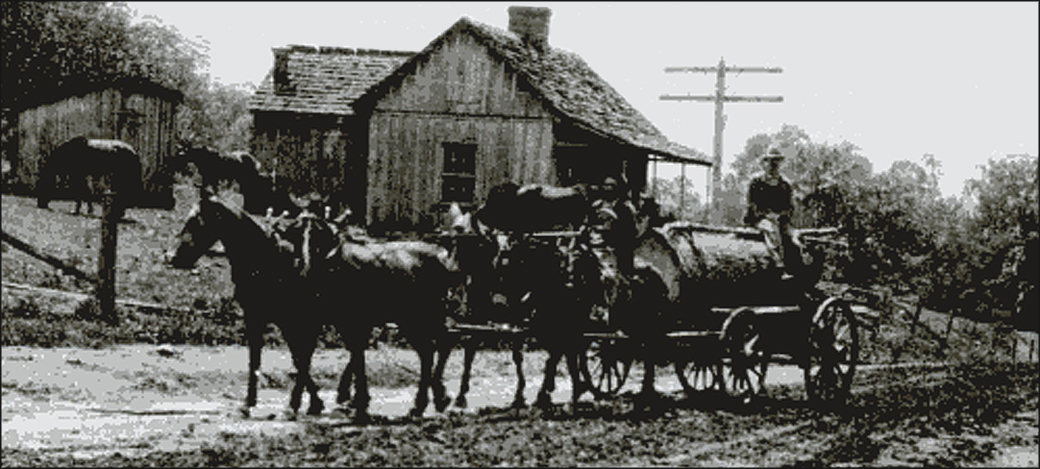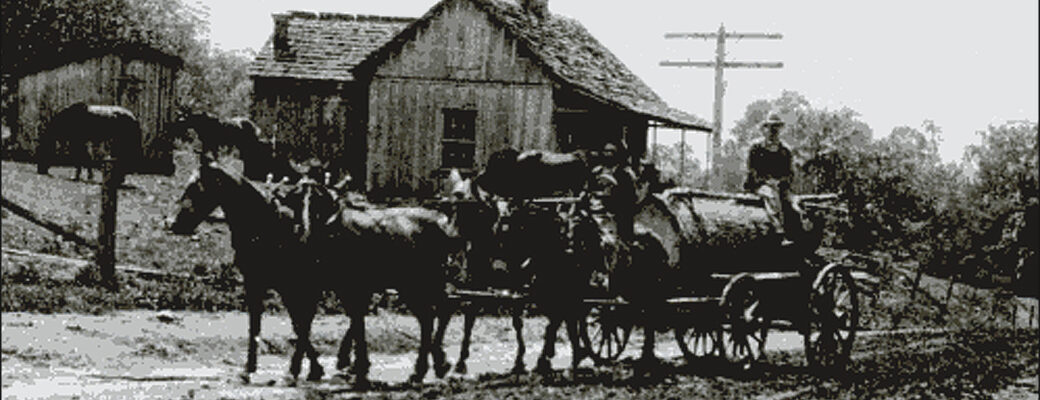In 1927, Miss Lucy Schaeffer, a former teacher at the Dorland Bell School in Hot Springs, NC addressed two missionary societies, asserting the position that no mentally dull or stupid person inhabited the mountainous districts of the Carolinas and Tennessee. Her talk, “The Land of Not Enough,” put a positive spin on mountain folks.
“The Southern mountaineers are a friendly people,” she alleged,” and they are not beggars. They are very anxious to give value received and their sense of humor is especially pronounced.”
Miss Schaeffer bought produce from an elderly farmer. She told the mountaineer that at the 500-acre farm of the institute, only 70 acres were tillable. She was deeply troubled by the presence of garlic and asked the man how to rid the property of it. His unexpected but clever reply was “That's easy. Just die and leave it.”
The speaker acknowledged that they manufactured moonshine up there, but not in the quantities to be found in other parts of the country. She spoke of a man who raised corn and hops and believed that he had a right to do as he liked with his own land. He was hailed before the Justice 11 times, but being a bright fellow, he pleaded his own case successfully and was cleared of the charge every time. When asked how many times he had been found guilty of making moonshine, he replied “11.”
Miss Schaeffer related the story of Jacob Coates, a poor white lad with a noble ambition, who not only worked his way through school, but also assisted in getting his two sisters and one brother educated.
Young Coates, like many others when he obtained an education, turned around and taught school and Sunday School in the back country so that others might enjoy what good had come to him. It was difficult to locate outside teachers who would abandon the comforts of civilization to teach in mountain schools. As a rule, the teachers were young people who had been born in the country district, but gladly returned to help their own kind.
A higher school of education in Asheville, North Carolina, also accommodated many of those seeking more than an elementary curriculum. The support of these schools came largely from the generous church folks of the North. At one time, second-hand clothing was sent to the schools in large quantities, but later the girls learned to make their own clothing from simple materials as a part of their school training course.
Diverse church denominations did not overlap in 1927 as they did 20 years prior, but the Methodists, Baptists, Presbyterians and others laid out their districts and worked harmoniously without disagreement.

Moving a Log Via Horse-Drawn Wagon in Washington County in 1915
In a previous article I wrote about Henry Ford, Thomas Edison, Harvey Firestone and John Burroughs taking refreshing vacations together in summer months.One day the four giants drove through the Tennessee mountains. Since night was fast approaching, they stopped and put their tent near some rustic cabins.
In the morning, Mr. Ford, awakened to gather firewood to make coffee. He located a dead tree of fair size that had fallen across the road. About that time, he spied a lad, whom he asked to help him by fetching a crosscut saw and working the other end of it. The youngster complied with the request and brought back the tool.
After they had sawed off a few limbs, Mr. Ford asked him if he knew who was at the other end of the saw. He then identified himself, stunning the youngster.
After waiting a few minutes, the young man replied, “Sir, do you know who is on my end of the saw? I am General Robert E. Lee,” firmly aligning his family's position in the Civil War. Ford, stunned by his unexpected remark thanked the lad and walked off.
Within a few weeks, a brand new Ford automobile could be heard cruising up a mountain road to the Lee family, sent there by the Detroit industrialist, who had humbly learned a lesson from a young Tennessee mountains boy.

Comments are closed.